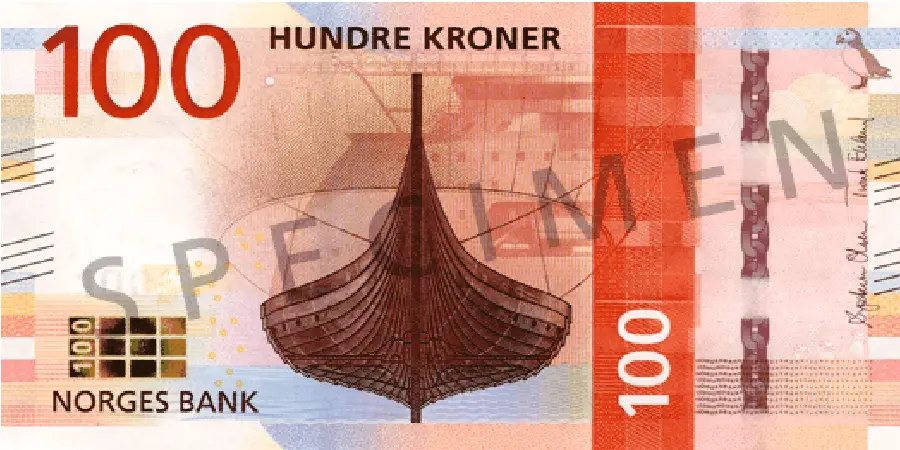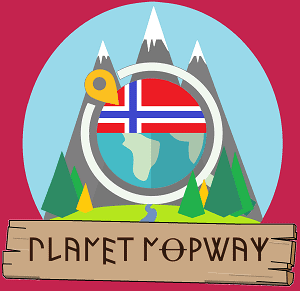Norway is consistently ranked as one of the best places to live in the world. And with an extremely high quality of life, incredible natural beauty, and welfare systems considered amongst the best, it’s easy to see why.
But, like any country, it’s not all mountainous vistas and limited working hours. Norway has its fair share of issues and before you decide if living here is something for you, you need to educate yourself. And that’s where we come in.
With this article, we take a look at some of the common issues you’ll be faced with and weigh up the pros and cons of living in Norway.

People
Any country is defined by its people and Norway is no different. The average Norwegian is an interesting animal and a bit of a contradiction. Most people agree that Norwegians can be reserved at first and even a little cold. But if you get to know them, they are friendly, kind, and have a really bad sense of humor.
If you pass a Norwegian in the street, you’ll get a stern-faced glance and that’s it. Pass the same person out in nature (Norwegians love the outdoors) and you’ll get a smile, a hello and they may even throw out a line about the weather.
And while it takes a certain amount of effort to get to know a Norwegian it’s usually worth it. After all, one of Norway’s favorite words is ‘dugnad’ which basically means volunteering for the communal good.
Nature

One thing anyone who has ever been to Norway can agree on: Norway is beautiful. Hundreds of thousands of tourists flock to Norway every year to see the dramatic fjords, picturesque villages, and wild mountains. Anywhere you live in Norway, it’s not far from a scene that’ll take your breath away.
In Norway, you have the right to roam. If you’re considerate and respect the nature around you, you can walk and camp almost anywhere you want.
But the fact is, even the stunning scenery has a downside. Norway is long, mountainous, and remote. Unless you fly, it can take an exceedingly long time to get anywhere. Due to the awkward terrain, there is a limited rail network, roads are long, windy, and small, and during the winter, in particular, roads can be closed by snow, avalanche, or flooding on a regular basis.
Weather

For some, Norwegian weather is part of the charm. It can be as rugged and unpredictable as the nature it bombards. But for most people, there is no getting away from it. Norway is basically a country of two seasons: wet winter and cold winter.
In Bergen in the west, it rains on average for 230 days a year. In the north, the coldest temperature recorded is -50 Celsius. And pretty much everywhere, 20 degrees is considered a warm summers day.
But even the bad weather has an upside. All the rain makes the western coast awash with lush forested green during the summer and provides some spectacular waterfalls. And in most of the mountains, the abundance of snow in the winter provides some fabulous skiing for both alpine and cross-country enthusiasts alike.
Government

Norway, like the rest of the Nordic countries, is a social democracy and it has some of the strongest welfare systems in the world. New parents are allowed up to a year free, with some of the time specifically allocated to the father. Sick leave is generously compensated, and unemployment benefits are significant
There is a belief amongst some in Norway that the generous welfare state acts as a cushion for those unwilling to work but statistics don’t really support that and even in troubled times, unemployment rates are relatively low.
For those who dislike government controls, Norway might not be the best place to live. The government can be felt in every aspect of Norwegian life from strict employment laws to the control of alcohol sales. While there are those that find this an infringement on personal freedoms, the overwhelming majority of Norwegians are happy with this model and believe it has a large part to play in the high standard of living.
Cost of Living

There is a common belief that Norway is an expensive place. And this is true in part but not the whole. As a tourist, Norway can be expensive. Eating out, entertainment and hotels are not cheap and a holiday in Norway can be a costly affair if you’re not careful.
But if you’re living in Norway the picture is more nuanced. If you are working in Norway, you are getting paid a Norwegian wage (with a few exceptions) and the salary takes into account the cost of living.
Yes, there are some things that are expensive, such as cars and alcohol. But there are things that are no more expensive than in other European countries, such as electronics.
Norwegian taxes are something you might find a little high. Sales tax is 25% on most things, income tax ranges from 25% to 50% and there are significant taxes on everything from cars to houses. There’s no doubt about it, taxes are no fun, and seeing your wage slip reduced by 40% every month hurts. But an important point to note is that most Norwegians accept the taxes as the price to pay to support the system they are very happy with.
Food

There is a popular reality TV show in Norway that follows Americans with Norwegian ancestry as they try to discover their roots and learn about the country. A comment that has been made more than once is:
“Why do Norwegian breakfasts come in tubes?”
And it’s true. Caviar, mayonnaise, cheese, and even mackerel come in tubes and are enjoyed as a common breakfast, usually on wholegrain bread.
Norwegians are proud of their food heritage and will happily encourage anyone to try cod that’s been covered in caustic soda, the head of a pig, salmon that’s been buried for months, or brown cheese.
Norway is also a modern country that picks up food trends from all over the globe. No matter what you prefer, you can find it. But Norway only has a limited population and is not the easiest country to reach so the selection in the supermarkets can be limited compared to some countries.
Safety

Perhaps one of the biggest pros of all, Norway is one of the safest countries in the world to live in. Crime is low and it is safe to move around anywhere in the country on your own. In 2020 there were only 31 recorded murders. The police are generally unarmed (although this has been changing recently) and violent crime is among the lowest in the world.
Closing remarks
So, there you have it, ask any Norwegian and they’ll tell you how proud they are of Norway. The pros are many and the cons few. But what about those that have moved to the country? They’ll tell you the same thing. The pros and cons of living in Norway? Lots of pros and very few cons.
